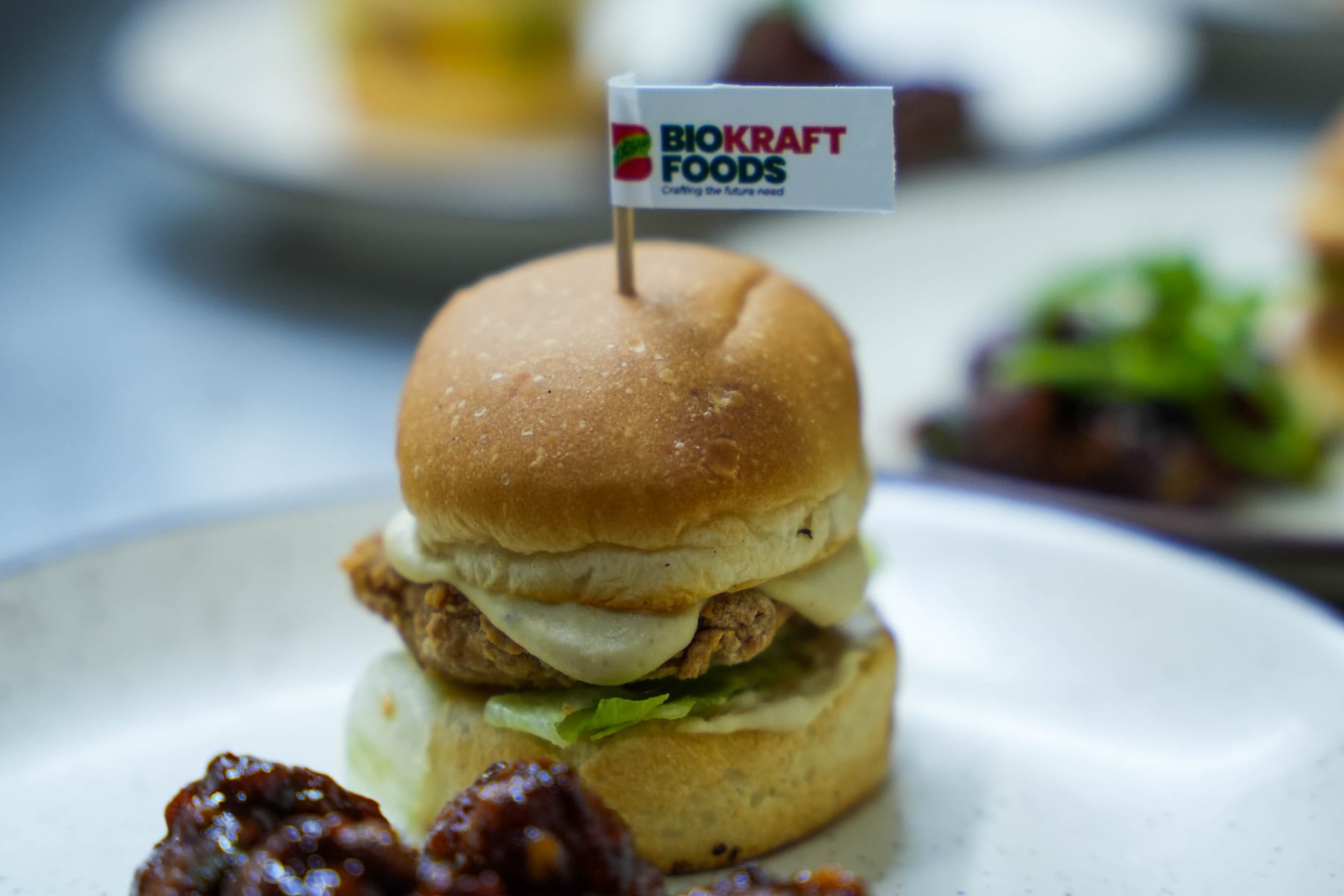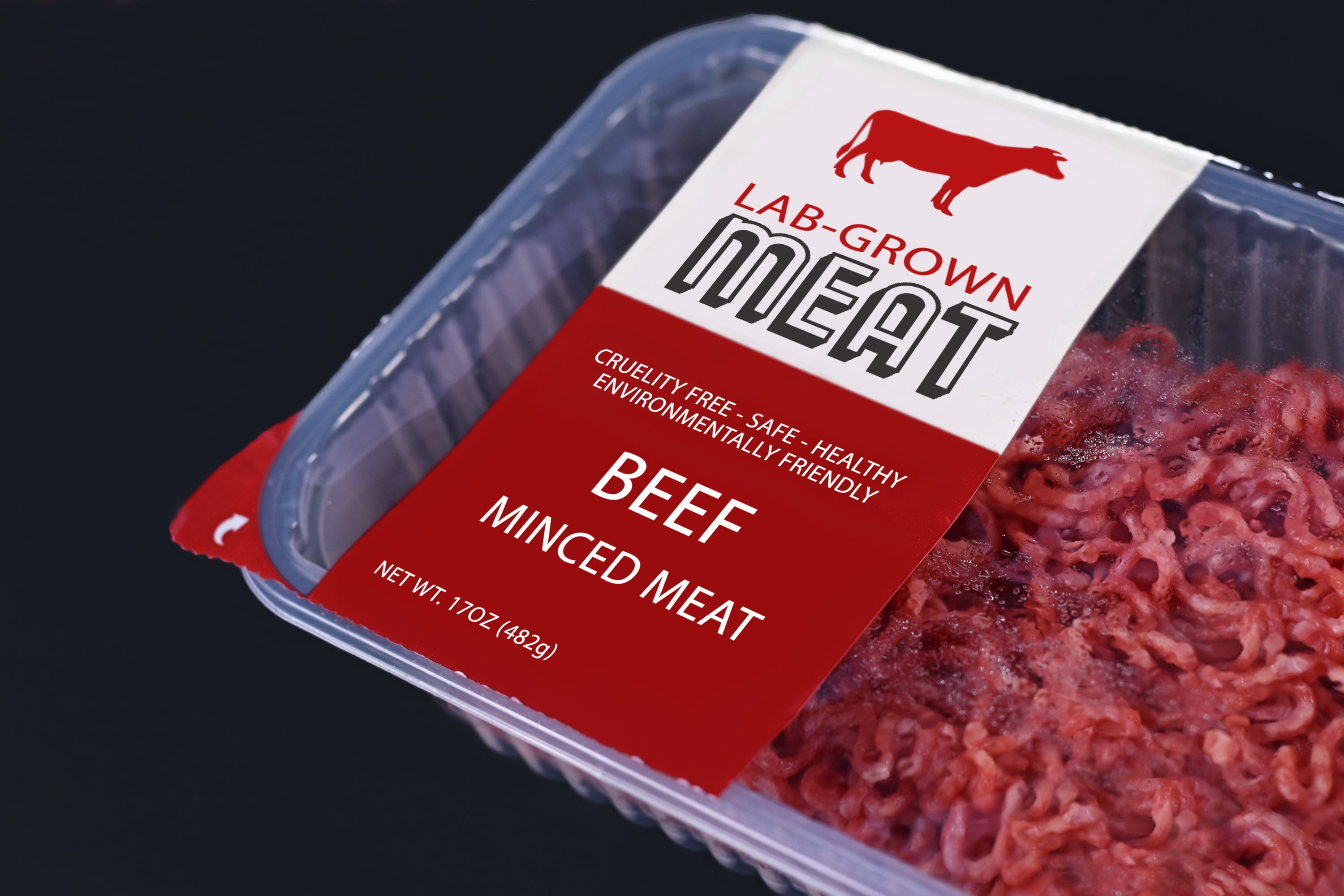Sixty percent of consumers in India are willing to consume cultivated meat and 46 percent would pay a premium for it, according to a survey by Biokraft Foods, a biotech start-up aiming to leverage this interest by launching 3D-printed chicken in 2025.
Biokraft Foods was founded in 2023 and is supported by incubator programmes that include ICT Mumbai, SPTBI, and iCREATE.
The firm is looking to price its product at Rs300–350 (USD3.50–4) per kg for the B2B premium meat market.
Traditional chicken costs Rs130–250 (USD1.50–2.90) for general consumers in India, but B2B prices are higher, ranging from Rs300–600 (USD3.50–7). This is due to the additional costs associated with maintaining consistent quality for bulk orders, providing uniform cuts, and specialised packaging.
“Our pricing will be similar to what restaurants are paying for a single piece of chicken breast,” said Biokraft Foods innovation specialist Mrunal Gund, emphasising that Biokraft’s product will be competitively priced against traditional premium chicken.
The firm credits its ability to keep pricing competitive to its 3D bioprinting technology, which offers significantly greater precision than other methods like suspension culture or moulding.
The accurate replication of natural meat textures and structures will reduce waste and the need for further processing.
Bioprinting is therefore more efficient for replicating real meat texture compared to other methods – the firm’s average production rate of one kg per day will be sufficient for meeting current market demand, said Gund.
Market readiness for cultivated meat
The premium pricing of cultivated meat prompted Biokraft to focus on India’s Tier 1 cities, where the survey was conducted among 75 respondents aged 18–35. While small, this sample represents the firm’s target demographic.
The survey findings also mirror a 2023 study by Good Food Institute India, which showed that about 56 percent of Indian consumers were “very or extremely likely to purchase cultivated meat regularly”, with interest in cultivated meat expected to grow once there is a product on the market and consumers are more familiar with it.
As for the reason behind focusing on chicken, Gund explained that it is easier to start by matching consumer demand.
“The majority of the population in India consumes chicken. About 60% of the population is non-vegetarian, and most of them prefer chicken. That’s why we are focusing primarily on chicken for now. In the future, we plan to expand into the fish and seafood categories,” shared Gund.
Gund expressed optimism for market readiness, affirming that India is ready for cultivated meat. The firm plans to collaborate with 10 restaurants in Mumbai, Pune, and Panaji this year. It is open to supplying to retailers like supermarkets if there is sufficient demand.
This comes after positive feedback at India’s first formal tasting event for cultivated chicken meat, held in Mumbai and hosted by Biokraft Foods in December 2024.
The event was graced by notable organisations including Good Food Institute India, India Animal Fund, the Chamber for Advancement of Small & Medium Businesses (CASMB), and global venture accelerator Brinc.
Participants tried chicken sliders and Indo-Chinese style chilli chicken. The feedback was the overall taste and texture were good, said Gund.
The next step is to obtain regulatory approval.
Regulatory approval for a nascent food category
Biokraft is working with the Food Safety and Standards Authority of India (FSSAI) on getting regulatory approval in the novel foods category.
Cultivated meat is currently a nascent category in India with no established regulatory protocols. But Gund is optimistic about the approval process.
“FSSAI is working on developing regulatory standards for this new category. We plan to submit our application in March. According to FSSAI officials, the approval process should take six to eight months if everything is in order,” said Gund, adding that Biokraft Foods is one of the first companies to enter the cultivated meat industry in India.
Other cultivated meat producers include ClearMeat and MyoWorks, both offering lab-grown meat.
Biokraft Foods plans to maintain a competitive edge over other firms by furthering its research and development efforts.
Upcoming developments
Biokraft plans to establish an independent R&D and production facility by year-end, a move expected to enhance scalability and support product diversification into seafood.
Another goal is to explore more efficient ways to make quality cultivated meat, such as how to create a moister product following feedback from its food-tasting event.
The firm currently uses immortalised chicken cells, nourished in an antibiotic-free nutrient medium, to grow cultivated meat. These cells are cultivated on algal- and plant-based polymers before being 3D-printed into meat-like structures with the taste and texture of chicken.
These developments are not just a milestone for Biokraft Foods but a leap forward for sustainable food innovation in the country, said Kamalnayan Tibrewal, founder and CEO of Biokraft Foods.
It signals a potential to revolutionalise the cultivated meat industry and put India on the global map for sustainable food technology, said Nilesh Lele, CASMB President and strategic advisor at Biokraft Foods.
The firm plans to organise more tasting events to expand external validation and reach a broader audience. These events will provide opportunities for consumers and industry experts to experience cultivated meat and contribute feedback for product refinement.





